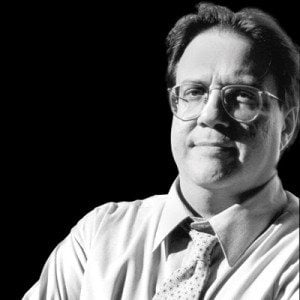Calling George W.

I tend to conveniently ignore the fact that Bill O’Reilly went to my high school. Yes, that Bill O’Reilly. At my old school, only boys were allowed. There were zealous men in long, dark, religious robes running up and down the hallways—and, yikes, some were praying in arcane foreign languages. Some women who worked there were covered, head to toe, so that only their faces were showing. Maybe a bit like the people O’Reilly would run into at, say, a mosque (except these were priests and nuns, not imams). So now we have O’Reilly, predictably, being the most polarizing mouthpiece attacking the proposed Islamic community center near Ground Zero in Manhattan. He’s argued that the feelings of the 9/11 families should be respected. He has also deflected the larger issue of religious freedom, America’s image overseas, and how all this anti-mosque reaction will be judged through the big prism of international relations.
More cleverly, he has turned the focus of this hard news story on its head by politicizing it, by throwing attacks at “the far left” and beating up on Speaker of the House Nancy Pelosi. Pelosi has done the right thing by suggesting that politics is in play—and suggesting that reporters stay on track, move beyond political grandstanding, and find out who is funding the mosque, as well as who is funding the anti-mosque attacks. For a second, she almost sounded like an editor with a conscience.
The instant politicization of a hard news story is nothing new in today’s digital cycle. Obama was pulled in: He said folks had a right to build a mosque in lower Manhattan if they wanted. Then he followed up the next day, saying he was not commenting on the wisdom of building the mosque, just underscoring the right to build one.
Sharon Grigsby, the deputy editorial page editor of the Dallas Morning News (disclosure: I worked at the News for 18 years, and Grigsby edited some of my stories and made them better) wrote: “The more significant issue in my opinion is that after President Obama did the wise but politically dangerous thing of commenting, he WAFFLED and stepped back from his original statement. That disappointed me greatly.” Mike Hashimoto, assistant editorial page editor at the News, told readers that Obama had “backpedaled” and that Democrats might view the president’s actions as “unwise.”
What could reporters have done instead of following the O’Reilly gambit of bleeding politics into the story? How about seeking some on-the-record comments from Dallas resident George W. Bush, under whose watch 9/11 occurred? How about posing some tough questions to the man who once stood on the rubble in lower Manhattan, a few blocks away from where the proposed Islamic Center would be?
Here’s what the Washington Post advocated on its editorial page: “As president, Mr. Bush never stopped making the distinction between Muslims and the terrorists who pervert their religion. As a politician, he understood the value to the Republican Party of reaching out to minorities, including Muslims. A word from Texas right now could offer his would-be heirs a useful lesson.”
Bush is at home in Dallas. He is in a better position than Obama, in many ways, to be pursued by journalists for an ambassadorial statement. Bush wants to have a “policy institute” at Southern Methodist University, where he and his apologists say the great issues of the day will be explored. Well, here’s a great chance for the Texas media to ask him to step forward—and like Jimmy Carter, align himself with the great issue of human freedom. He is, in many ways, the perfect person for Texas journalists to pursue for a careful story about America’s image, about this country’s legacy of religious freedom and about the real lessons of 9/11.


